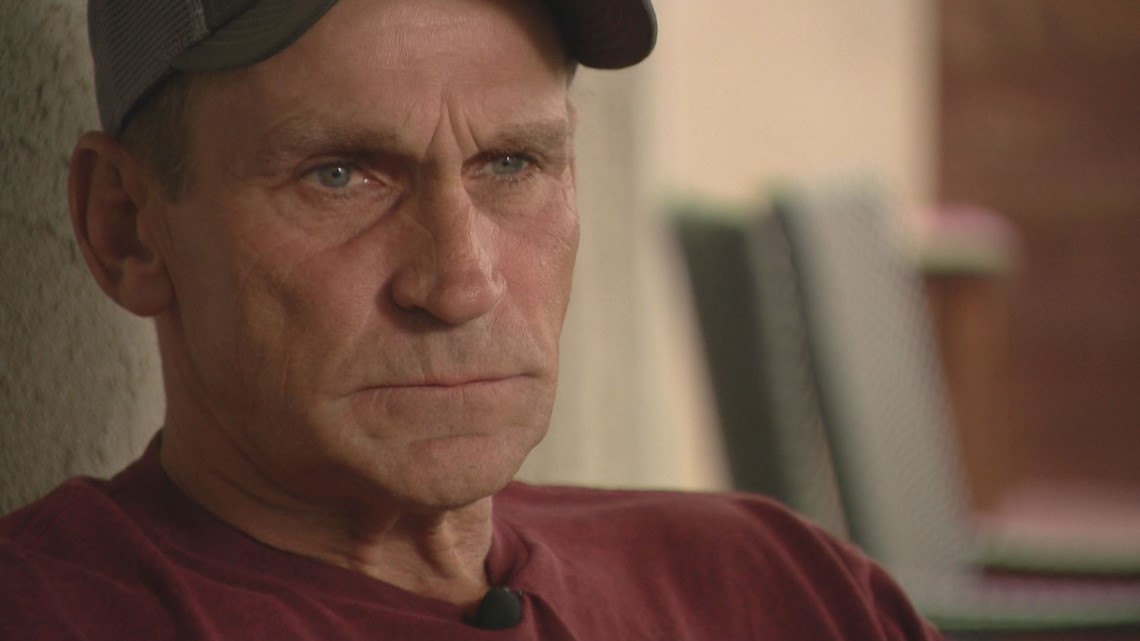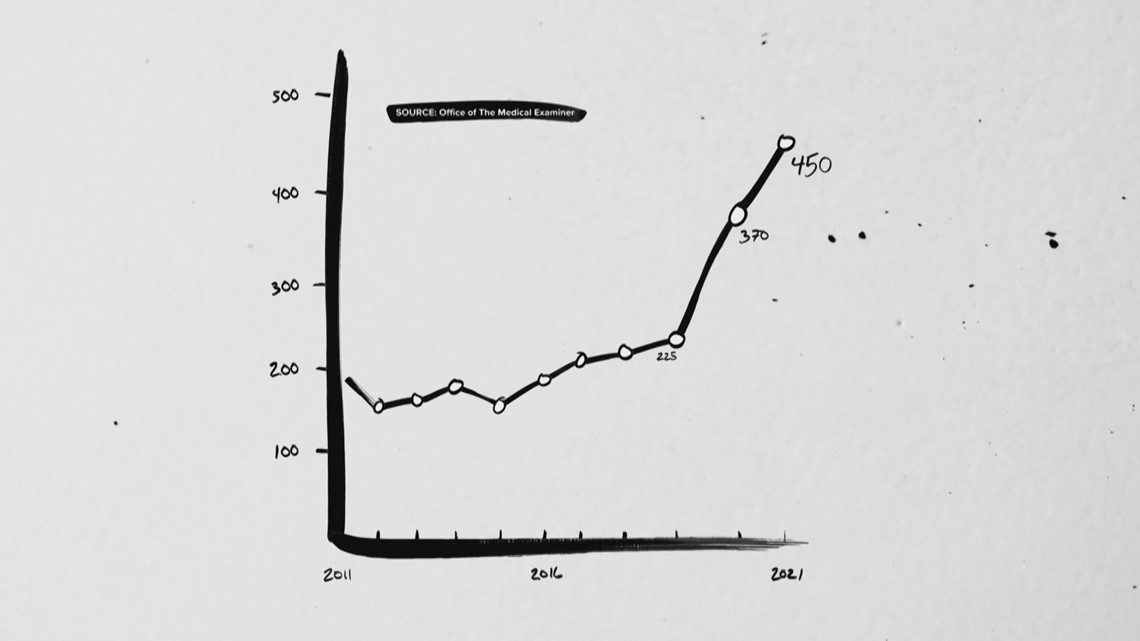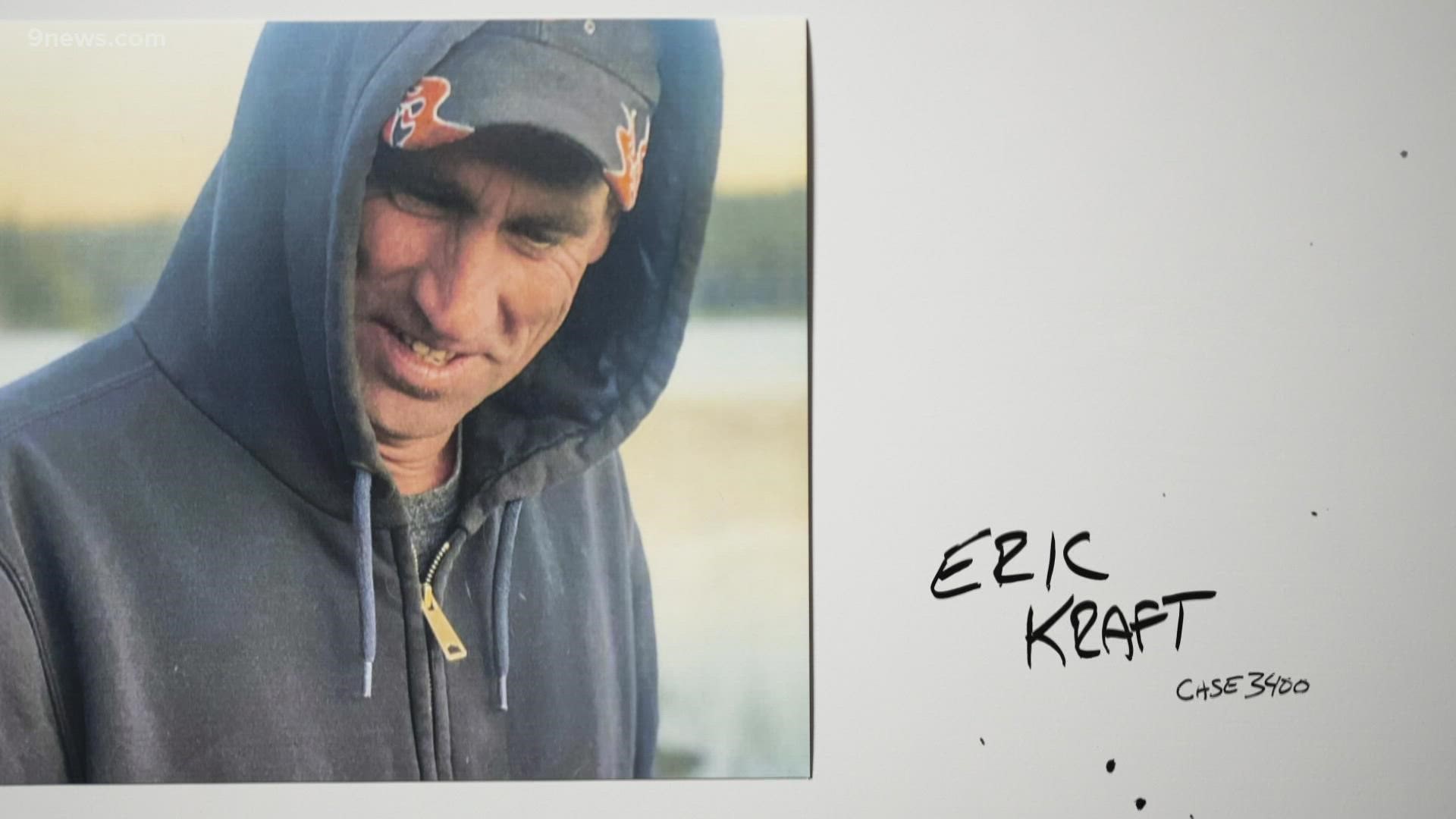DENVER — Curtis Kraft could have hung up on me. Honestly, I wouldn’t have blamed him for it.
I told him I wanted to know more about his brother. At the time, the overdose death of Eric Kraft was undoubtedly fresh.
I half expected him to say, “No thanks.” The other half of me expected a much more curt response.
Instead, he surprised me. “I want to thank you for calling me,” Curtis said. “I’d really like to talk about Eric.”
9NEWS Photojournalist Chris Hansen and I set out for Montrose a few days later.
What we found was a story all too familiar to hundreds of Colorado families. As the COVID-19 pandemic isolated, an epidemic of overdoses worsened.
2020 was bad. 2021 was even worse.


Our story started last summer with an idea. Reporters have tried, to varying levels of success, to tell the story of what’s happening to tens of thousands of Americans every year.
We wanted to tell the story in a different kind of way.
One day. One office. We pitched the idea to the city of Denver last summer. In early September, we got the call. We could come in.
On Sept. 9, 2021, Chris Hansen had the unenviable task of documenting seven autopsies at the Denver Office of the Medical Examiner. He had no intention of recording bodies and faces. He simply wanted to better understand the process.
During the early morning briefing, Dr. James Caruso said as many as five of the seven deaths involved possible overdoses.
Caruso has headed the office for eight years. He’s never seen his office this busy when it comes to drug cases.
“There has been a really, really significant increase in drug overdose deaths,” Caruso said.
Here’s the breakdown:
2011: 181
2012: 151
2013: 159
2014: 173
2015: 156
2016: 175
2017: 200
2018: 207
2019: 225
2020: 370
2021: 450 (Note: Not all 2021 cases have been counted.)
One of the deaths in 2021 involved Eric Kraft.
One day, last fall, I found his brother. That’s when I made the call.


Curtis Kraft builds homes. Many of his employees are recovered addicts. Three years sober, he feels he owes something to all of them.
“My sobriety is lifesaving to me, and me helping these guys helps me stay sober as well,” he told me.
We first met Curtis on a rainy October day at his home which had a wonderful, if not somewhat distant, view of the snowcapped San Juans.
He was surrounded on his back porch with family and friends when I asked, "Who was Eric Kraft?"
“He was a 45-year-old goofball,” Curtis said. Six years Eric’s senior, Curtis periodically took it upon himself to keep tabs on his troubled younger brother.
It was Curtis’ idea to get Eric into the Calvary Ranch, a live-in, faith-based recovery center near Montrose.
“You could just look at him and tell he hadn’t been sleeping in days,” Curtis recalled.
Eric was baptized during that first stay. Things seemed to be working. Well.
It all turned, however, the first night away from the facility.
Curtis had brought him with him on a housing job. “We worked for a few hours, went back to the motel… me and my daughter went to the grocery store and by the time we got back Eric was high already,” Curtis said.
A few months later, Curtis brought Eric back to Calvary Ranch.
It seemed to work. Again.
And then came September 2021.
Eric Kraft collapsed outside of a cellphone store at West 44th Avenue and Federal Boulevard in Denver. He died a few days later.
When photojournalist Chris Hansen recorded his autopsy, Eric Kraft was simply a number.
3400.
I can’t thank Curtis enough for having the strength to talk to us. It’s a brutally personal subject to talk about.
I reached out to the families of the three other overdose cases we recorded that day. (Toxicology results revealed that one of the suspected cases was not an overdose.)
The families were polite, but they didn’t want to talk with me about their loved ones.
Not on camera. It’s too tough.
I get it, but I also commend Curtis for electing to discuss his family with us.
Honestly, in the midst of the worst year Denver has ever seen when it comes to overdoses, I think we’re going to need a few more people willing to talk about this.
Heck, not talking about it doesn’t seem to be helping.
What Curtis did takes guts. And a heart.
A heart that still feels pain for the loss of his brother.
>The 9Wants to Know investigative team is covering this story. If you have a tip about this story or any other story email blowthewhistle@9news.com
SUGGESTED VIDEOS: 9NEWS Originals
MORE WAYS TO GET 9NEWS
Subscribe to our daily 9NEWSLETTER for top stories from 9NEWS curated daily just for you. Get content and information right now for can’t-miss stories, Next and Broncos content, weather and more delivered right to your inbox.
DOWNLOAD THE 9NEWS APP
iTunes: http://on9news.tv/itunes
Google Play: http://on9news.tv/1lWnC5n
HOW TO ADD THE 9NEWS APP TO YOUR STREAMING DEVICE
ROKU: add the channel from the ROKU store or by searching for KUSA.
For both Apple TV and Fire TV, search for "9NEWS" to find the free app to add to your account. Another option for Fire TV is to have the app delivered directly to your Fire TV through Amazon.

